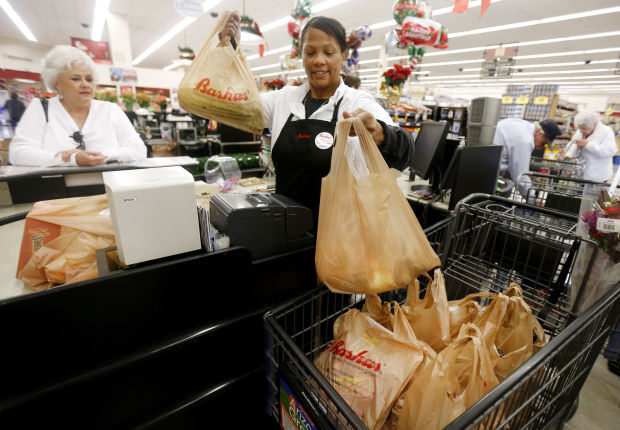PHOENIX — Backed by grocery stores, restaurants and retailers, the state House on Thursday voted to block cities and counties from getting in the way of the question: paper or plastic?
SB 1241 would make it illegal for any community to adopt California-style legislation requiring merchants to charge a nickel a bag when patrons do not bring their own. That would immediately overturn an existing ordinance in Bisbee and thwart proposals being considered elsewhere, including Flagstaff, Tempe and Tucson.
The legislation does not stop with that. It also forbids mandatory recycling programs of any kind.
Rep. Warren Petersen, R-Gilbert, says that’s all being done in the name of individual freedom.
“I understand that some people want to make the decision of ‘paper or plastic’ for other people,” he said. “And I understand some people have an ideology of collectivism. For me, I support individual rights and people making their own decisions.”
It was the point of individual good versus collective good that framed the focus of the debate.
Rep. Ken Clark, D-Phoenix, said the city of Phoenix, which has a voluntary recycling program, spends about $1 million a year to remove plastic bags from the equipment designed to separate various items.
“Who would you say pays for that?” he asked.
“Taxpayers pay for trash services,” Petersen responded.
Clark said that proves his point: Programs to reduce the use of plastic bags benefit all taxpayers, including businesses.
Petersen, however, was unconvinced. He said individuals and businesses are in the best position to know what makes financial sense for them.
“I trust the business owner, I trust the individual, much more than I will ever trust government to micromanage how someone can save money,” he said.
But Rep. Stefanie Mach, D-Tucson, said that ignores the fact that government is not some separate entity.
“We are the government,” she said, including individuals and business owners. And Mach said locally elected councils represent their residents and approve measures they presume those constituents want.
“And so we need to start talking about what’s best for the collective, our environment, our business community, our economy, and all of that together,” Mach said.
A final roll-call vote is needed to send the measure back to the Senate to consider differences with the version that chamber approved.





